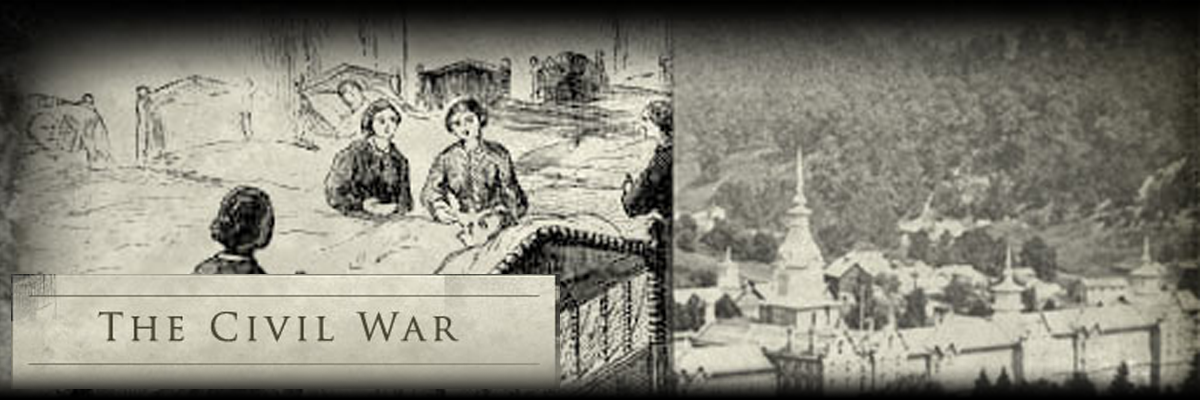Your cart is currently empty!

Colonel Erastus Bernard Tyler
An Important Military post
The Civil War was the most tumultuous event in American history. It not only divided the country but splintered families and friendships into bitter adversaries. Nowhere was this tragic factionalism more evident than in border states like Virginia. The emerging Trans-Allegheny Lunatic Asylum, the town of Weston, and surrounding Lewis County, then still part of Virginia, was no exception. The events that took place here, although generally unknown, played a key role in remolding the United States and have had lasting effects that are felt to this day.
When hostilities broke out in April of 1861 with the bombardment of Fort Sumter, the Civil War, which would eventually extinguish over 600,000 American lives, had begun. At that time, the Trans-Allegheny Lunatic Asylum was still in the early stages of construction. The southernmost wing had been completed and a basement and foundation for the massive central structure had been excavated and walled in. In June, Virginia’s secession from the Union brought all non-war related work to a halt. This set the scene for the most dramatic event in the history of Weston: at 5 a.m. on the morning of June 30th, 1861, the citizens of Weston were roused from sleep by the sound of drums, fifes, and marching soldiers entering their town. It was the Seventh Ohio Infantry, which had marched all night from Clarksburg, approximately 25 miles to the north. In command was Colonel Erastus Bernard Tyler, who was familiar with the area and well-known to many of its citizens. He had been a furrier before the war and had bought and sold his fur products throughout Lewis County prior to joining the army. Tyler ordered his troops to sweep through the town and seize any individuals suspected of Confederate sympathies. One of his men, Captain List, took two armed soldiers and made a beeline for a specific location and the real purpose of the mission.
The location was the Weston Branch of the Exchange Bank of Virginia, which held almost $30,000.00 in gold deposited by the state government of Virginia, to provide wages for those laboring on the new asylum. Tyler’s mission was to seize the gold before it could be returned to Richmond and used to support the rebellion. Awakened by the commotion, banker Robert McClandish, who lived on the second floor of the bank, appeared at the front door where it was demanded he turn over the contents of the vault. McClandish objected, but there was little he could do other than what he was told. List ordered the vault opened and removed $27,000.00 (worth well over a half million today) in gold coin, leaving $2,371.23 which the books established as due to creditors. The money was taken to Wheeling, where it would help fund the new State of Virginia which, in 1863, became West Virginia.
The partially built Asylum and surrounding grounds became Camp Tyler, establishing Weston as an important military post, vital to the control of the well-traveled roads in the area. The completed southern wing of the asylum provided barracks and the main foundation served as a stable. Control of the area would change hands several times during the war. Confederate raids in 1862 and 1863 temporarily dislodged the Union troops and, in 1864, raiders not only confiscated another $5,287.85 from poor Mr. McClandish but would strip the Asylum of all food and clothing intended for its first group of patients. At the end of the war, the completion of the Trans-Allegheny Lunatic Asylum was prioritized. Consequently, while so many other towns were financially ruined by the war and would remain destitute for a decade, Weston did not experience a post-war depression. Business boomed as the Asylum established itself as the primary economic resource for the town. It would remain so until it was closed 130 years later.

